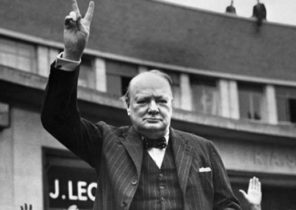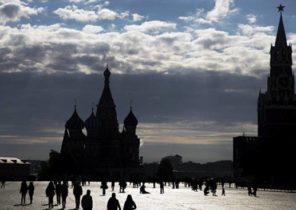
Lviv — Lviv, this charming city in Western Ukraine, has acquired a good reputation with its strict beauty era of the reign of the Habsburgs, as well as its many lively cafés. Recently, however, he became famous for an entirely different reason — it had accumulated a huge pile of garbage.
Within a few months the lions trying to solve the problem associated with the export of several hundred tonnes of waste it produces every day. According to municipal employees, many companies involved in waste collection, are faced with limited access to nearby landfills, and therefore the number of places for placing of municipal waste has decreased dramatically. As a result, the streets and in the courts of this regional capital with a population of about 750 thousand people began to form mountains of garbage. Today, a third of Lviv landfill is completely filled, and their contents often on the streets and on the sidewalks — and people are concerned about what will happen to these piles of trash during the warmer months.
According to Ivan Savitsky, his yard was cleared of debris just after he and his neighbors, alternately one after another, began to exert pressure on city officials. If you call them, remind them and they get bored, then they clean up the garbage, he said. — If this is not done, the debris will remain in place”.
However, which lasted for many months, the crisis seems to be approaching its end thanks to the recently reached agreement between the regional and local officials. However the issue is still having an impact on this in many other ways as a dynamic regional centre. Lions trying to solve the problem of garbage collection since may of last year, when there was a fire at the largest garbage dump outside the city. His victims were four people. Soon after, other landfills stopped accepting waste, and their representatives justified their actions by saying that they fear a repetition of such a catastrophe.
Activists and residents have United to block — in some cases literally — transportation of waste located near the cities garbage dump. In other cases, according to the mayor of Lviv Andrey Sadovyi, the Federal government banned the dumps to take the garbage out of his city.
“We came to the conclusion that soon we will not be able to cope with the accumulated trash, he says. — And this, perhaps, is a desirable scenario.” As often happens in Ukraine — this former Soviet Republic is experiencing difficulties with the introduction of a transparent democracy, is a part of the picture is politics. The problem with garbage has become a political football, and Garden advocates to protest against garbage “siege”, created, in his opinion, the Central government in Kiev.
Garden became an outspoken critic of Ukrainian President Petro Poroshenko, who, according to the mayor of Lviv, trying to denigrate him and to put pressure on his political party “Samopomich”. Although its rating in the national scale remains at the level of single digits, “Self-help” was able to secure the support among loyal supporters, and these people are now receiving considerable publicity protests against the existing government.
Poroshenko and his administration are increasingly criticized by their political opponents, as well as from a significant part of the population of Ukraine. The reason for this criticism is the inability of the government to eradicate corruption and to take tough action against the corrupt oligarchy.
“The logic is very simple — if you want to influence a political party, you put pressure on its leaders, said Garden. — The pressure is on me personally, so I changed its position, and also to my colleagues voted as it suits the presidential administration.”
Other people reject these claims. Opponents of Garden believe that he’s playing politics in order to hide the incompetence of the city authorities, especially their inability to find alternative methods of waste disposal even before last year’s fire at the dump in the village Hrybovychi.
Oleg sinyutka, appointed by the President, the Governor of the Lviv region, said that the city tries to delay the solution to the problem of garbage. He accuses city leaders of intentionally sabotaging waste collection and the inability to negotiate with other landfills.
In any case, the failure of the city garbage has attracted the attention of people in the country, and this problem becomes the new political challenges for the city, trying to imagine myself as a progressive example for the rest of Ukraine. Garbage has become a national issue. Chronic underfunding from the state budget and from funds of investors was the cause of the lack of effective strategies for the collection and disposal of garbage. The situation became so acute that officials began to discuss the possibility of transportation of waste in the Chernobyl exclusion zone, although such proposals are unlikely to gain much support.
Recently, an agreement was concluded for a period of two years between the Lviv regional administration located near the cities regarding the acceptance of debris, meanwhile, the city itself is awaiting commissioning of the plant for processing waste, the construction of which is financed by the French government and the European investment Bank. As expected, construction will begin this year.
Garbage disposal is not widespread in Ukraine. 95% of solid waste — an astounding figure! — buried for its entire territory, while in the EU undergo recycling more than 40% of waste.
“In Ukraine, when we talk about the direction of motion, it is very important to understand where Europe is already moving,” says Irina Mironova, an activist of the “Zero waste” in Lviv. In recent months, this group conducted a special campaign to attract public attention and encouraged people to produce less waste. Some cafés have responded to this call and began to offer discounts to visitors who bring their own containers for debris and steel themselves to deal with the disposal of bags of sugar and plastic tubes.
Conscious attitude to environmental protection is becoming more common among the generation of educated youth. Many young people have already visited other countries, they are familiar with European practice and European living standards. The expected introduction of the EU visa-free regime with Ukraine at the end of this summer will undoubtedly contribute to the further development of this trend.
“It is natural for them, — says Andrey Moskalenko, Deputy mayor of Lviv development. Is not those things that they need to talk to representatives of the city administration or any other organizations.”
But while Savitsky and other residents of the city do not see any certainty in regard to waste disposal. “This issue will remain unresolved until the bureaucrats figure this out about their interests,” he says.







